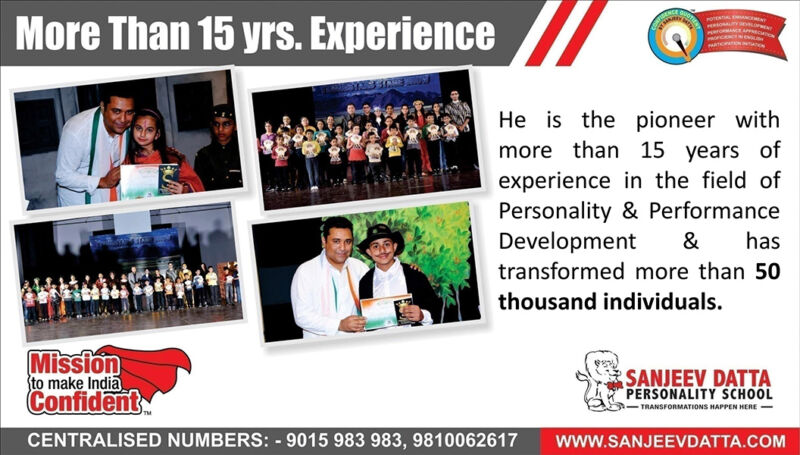Learning and continuous education form the bedrock of a child’s development and pave the way for a successful future. By implementing effective strategies for learning and continuous education, parents and educators can provide children with the tools and opportunities to thrive academically, socially, and creatively. Learning and continuous education are vital for personal growth, professional development, and staying updated with the ever-evolving world around us. Continuous learning fosters a mindset of curiosity and open-mindedness, encouraging individuals to seek out new information, insights, and perspectives.
Whether through formal education, online courses, workshops, or self-study, each learning experience contributes to an individual’s intellectual growth and broadens their understanding of the world. Learning and continuous education play a fundamental role in the development and growth of children. From an early age, children possess an innate curiosity and eagerness to explore the world around them. By fostering a culture of learning and providing opportunities for continuous education, parents and educators can lay a strong foundation for a child’s future success.
Instilling a love for learning from an early age sets the stage for their future success, as they continue to adapt, explore, and thrive in an ever-changing world. By creating an engaging learning environment, involving parents and caregivers, utilizing technology appropriately, and providing diverse learning opportunities, we can empower children to become lifelong learners.
The Infinite Classroom: Lifelong Learning Strategies for All Seasons of Life
- Create a Stimulating Learning Environment:
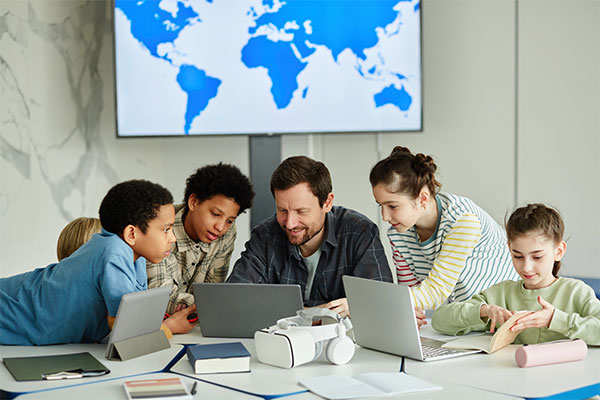
A stimulating learning environment is the foundation for a child’s educational journey. Provide a dedicated study area with appropriate resources like books, educational toys, and engaging materials. Foster an atmosphere that encourages curiosity, exploration, and independent thinking. By setting up a conducive learning environment at home or in school, children are more likely to stay engaged and motivated to learn.
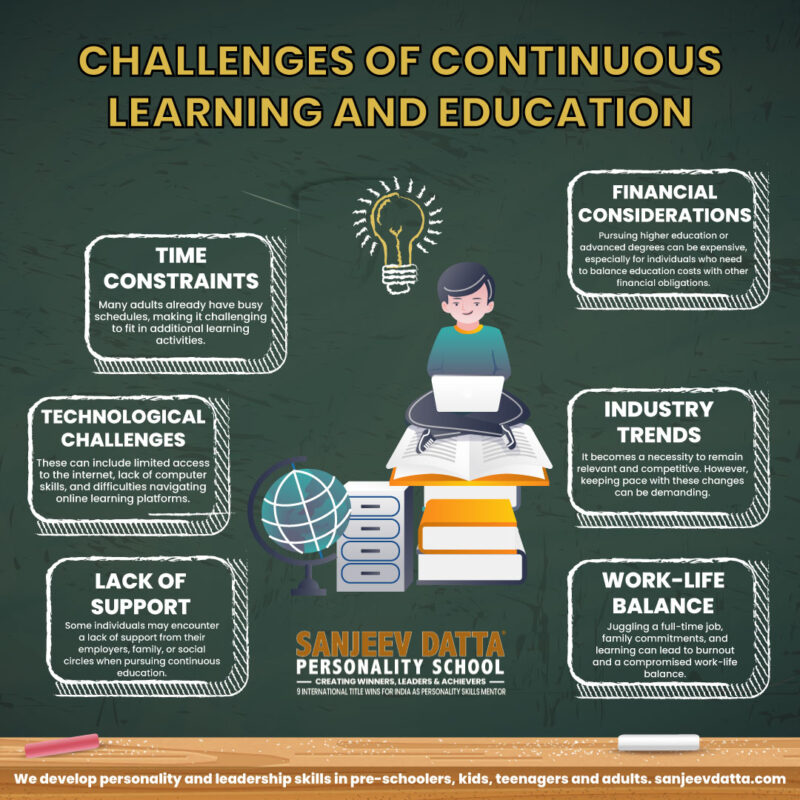
2. Encourage Active Participation:

Active participation is key to promoting deeper learning and knowledge retention. Encourage children to actively participate in discussions, ask questions, and engage in hands-on activities. This method encourages critical thinking and problem-solving abilities while also assisting students in gaining a deeper comprehension of the material. Incorporate group activities and projects that promote collaboration, communication, and teamwork.
Visit: stage exposure activities for kids
3. Emphasize Personalized Learning:
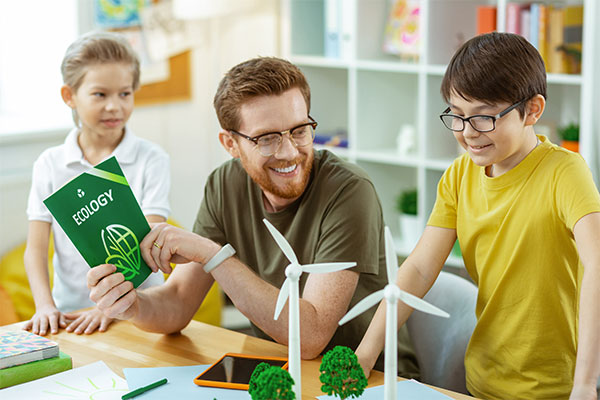
Every child has unique strengths, weaknesses, and learning styles. Emphasize personalized learning by tailoring educational approaches and activities to suit individual needs. Allow children to pursue subjects of interest and explore their passions. By catering to their interests, you can foster intrinsic motivation and a love for learning. Transform your life one trait at a time – join our personality development classes for personal growth and development.
4. Incorporate Technology:

Incorporating technology appropriately can enhance learning experiences. Introduce educational apps, interacte websites, and online platforms that provide age-appropriate content and activities. Use technology tools for gamification of educational content, which can make learning engaging and enjoyable for children. However, it’s essential to monitor screen time and ensure a balanced approach between digital and offline learning activities.
Visit: importance of preschool activities
5. Promote Continuous Learning:

Learning should not be confined to the classrooms alone. Encourage continuous learning beyond school hours. Provide access to books, educational websites, and online courses that cater to their interests and expand their knowledge. Top personality development school like ours offer comprehensive programs that focus on enhancing social skills, communication abilities, leadership qualities, and emotional intelligence.
6. Cultivate Effective Study Habits:

Teaching children effective study habits sets them up for long-term success. Teach them strategies such as time management, goal-setting, and organization. Encourage them to break down tasks into smaller, manageable chunks and establish a routine that includes dedicated study time. By cultivating these habits from a young age, children develop discipline, focus, and resilience.
7. Engage in Extracurricular Activities:

Extracurricular activities provide opportunities for holistic personality development for kids. Encourage children to participate in activities like sports, music, art, or drama. These activities help build character, develop social skills, and boost self-confidence. They also provide platforms for self-expression, creativity, and personal growth.
8. Foster a Supportive and Encouraging Environment:
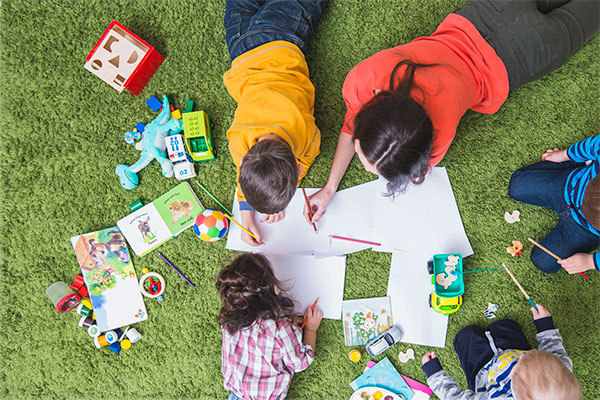
Creating a supportive and encouraging environment is essential for a child’s overall growth and development. Ensure that children feel valued and supported in their learning journey. Celebrate your child’s accomplishments, no matter how minor, and provide them constructive criticism to help them get better. Encourage open communication, active listening, and empathy in your interactions with them
Visit: tips to develop child curiosity
Conclusion
As parents and educators, it is our responsibility to nurture and guide children on their educational journey. By continually seeking out innovative approaches and creating an environment that promotes growth and exploration, we can empower children to reach their full potential. Incorporating these strategies into their daily lives, we can help them cultivate a thirst for knowledge, adapt to new challenges, and become well-rounded individuals prepared to navigate the complexities of the modern world.
Strategies for learning and continuous education provide children with the tools and opportunities needed to thrive academically, socially, and emotionally. By instilling a sense of curiosity, fostering critical thinking skills, and encouraging exploration, children can acquire knowledge and develop essential life skills.
Why Sanjeev Datta Personality School?
- INTERVIEW TRAINING
- Leadership
- Presentation Training
- Social Boldness
- Dressing Etiquette
- Office Etiquette
- Communication Skills
- English Speaking
- Anger Management
- Time Management
- Team Building
- Performance Enhancer
- Soft Skills
- Goal Setting
- Career Counselling
- Student Subject Choice Counselling
- Listening Skills
- Video Presentation
- Meditation
For more details, contact us now!


